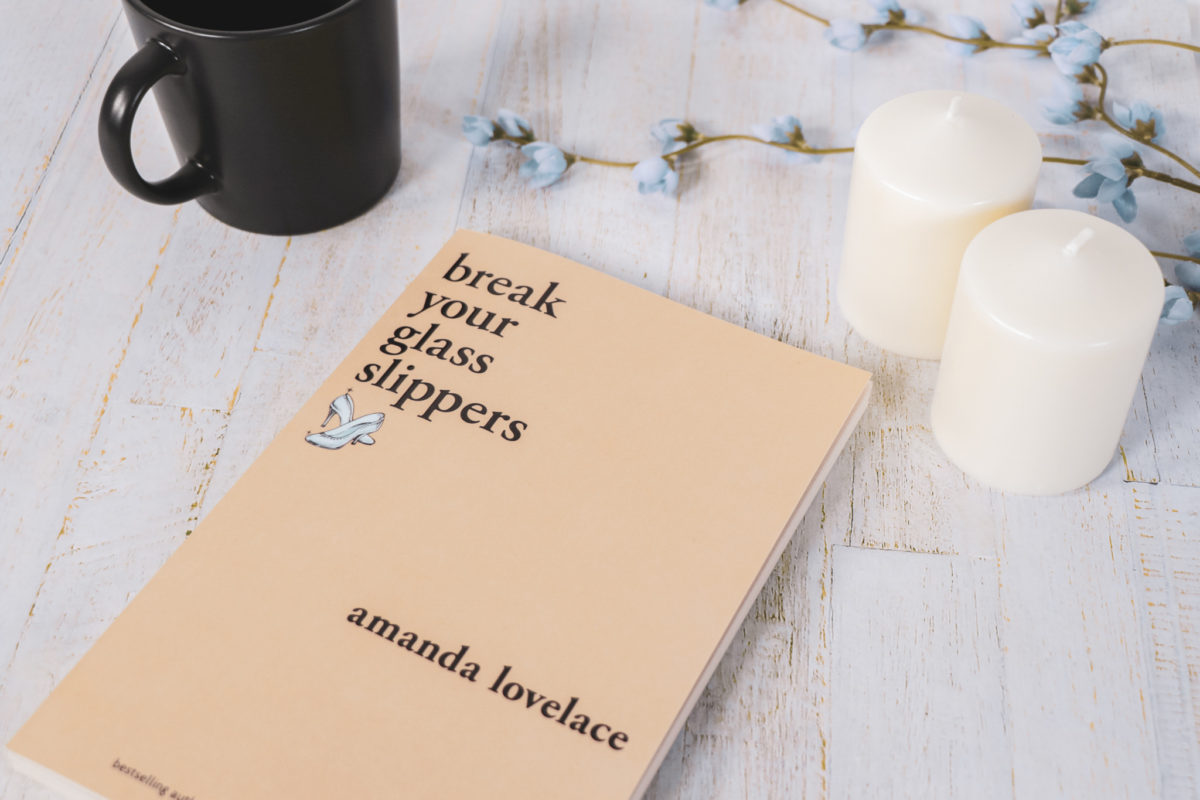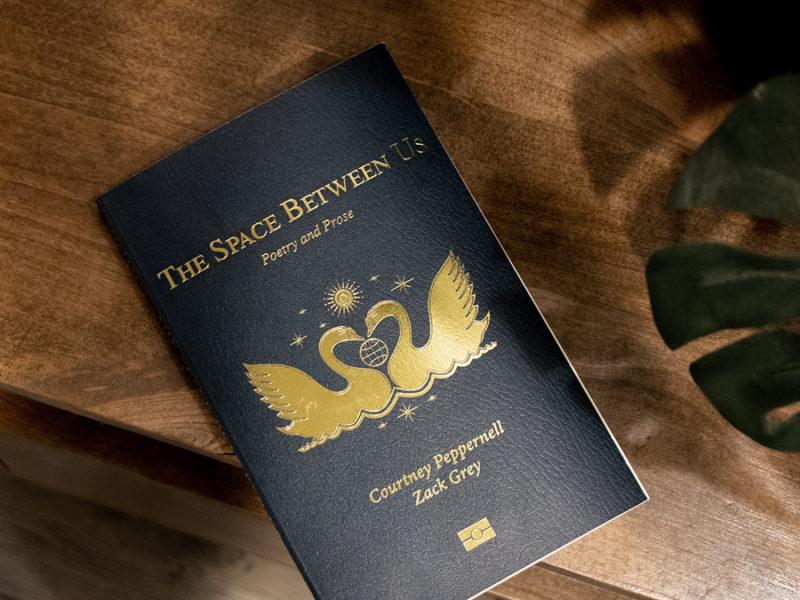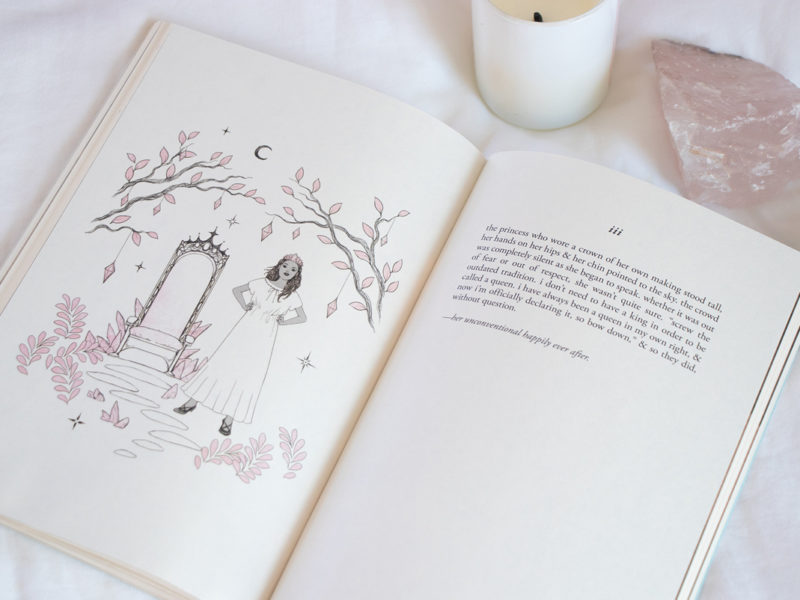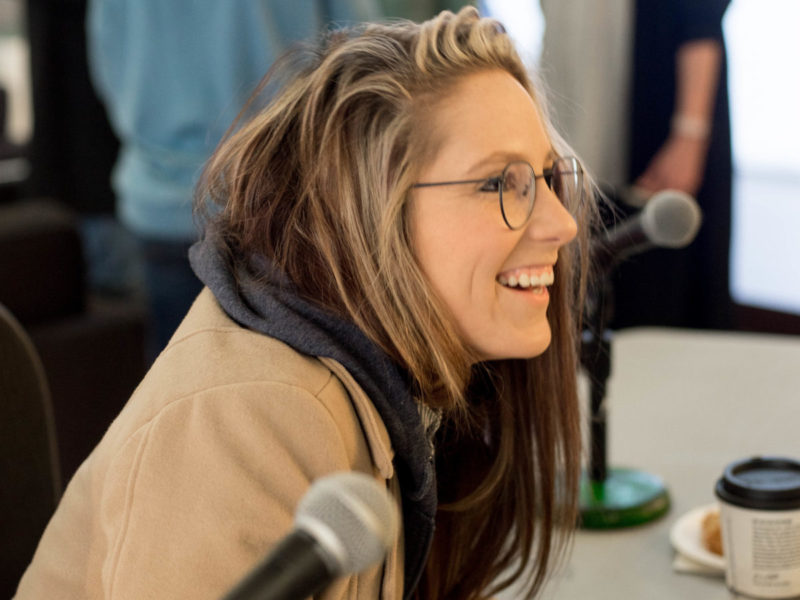Amanda Lovelace talks about her new collection, break your glass slippers
Two-time winner of the Goodreads Choice Award for Best Poetry, and USA Today and Publishers Weekly bestseller, Amanda Lovelace needs no introduction. The New Jersey-based poet made her debut with the princess saves herself in this one, the first book in her “women are some kind of magic” series. This deeply personal and well-received trilogy became the building blocks of Lovelace’s platform, as her work deals with difficult topics such as abuse, trauma, and healing. The last time the Read Poetry team had some one-on-one time with the poet was just after the launch of to drink coffee with a ghost. Today, she sits down with us to unpack the first installment of her newest companion series “you are your own fairy tale,” break your glass slippers—available March 17.
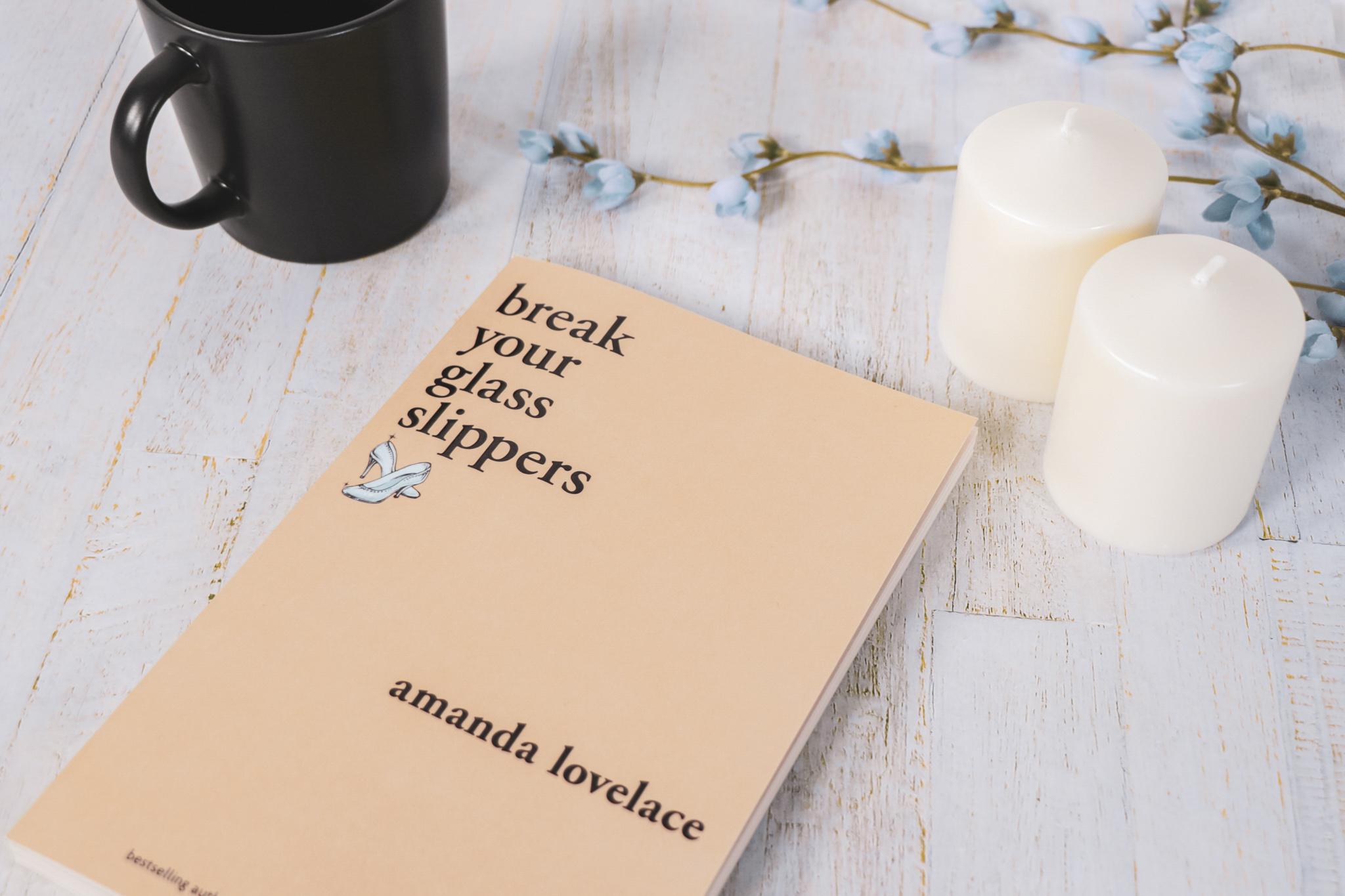
Thea Voutiritsas: This book is, in many ways, an unorthodox retelling of Cinderella. At what point in your life did you begin questioning the classic fairy tale story?
Amanda Lovelace: I don’t think I began questioning Cinderella as well as other fairy tales until my late teens or early twenties when the fourth wave of feminism first began.
For those who may not know, the fourth wave of feminism utilizes the internet in order to gather activists and more easily spread information, and Tumblr—the social media platform I used most at that particular time—was heavily impacted by it. Up until that point, I thought the daily misogyny I experienced and read about was, well, normal, and should be tolerated.
Now that I know better, I work hard to make sure girls grow up reading stories with better messages than I did, and my new “you are your own fairy tale” series is very much part of that!
TV: Many poems in the collection touch on the importance of using your voice. What role would you say poetry plays in you using your own voice?
AL: Poetry is, in many ways, about sharing truths, and the great thing about it is that you can lay them as bare as you wish, or you can hide them behind metaphors. The possibilities are endless. It’s especially powerful for people who want to speak on stigmatized topics such as abuse, mental health issues, and sexism but don’t have anywhere to do it where someone else will listen without judgment. In that way, poetry provides a safe and cathartic place to express oneself—the only way I can describe it is freedom.
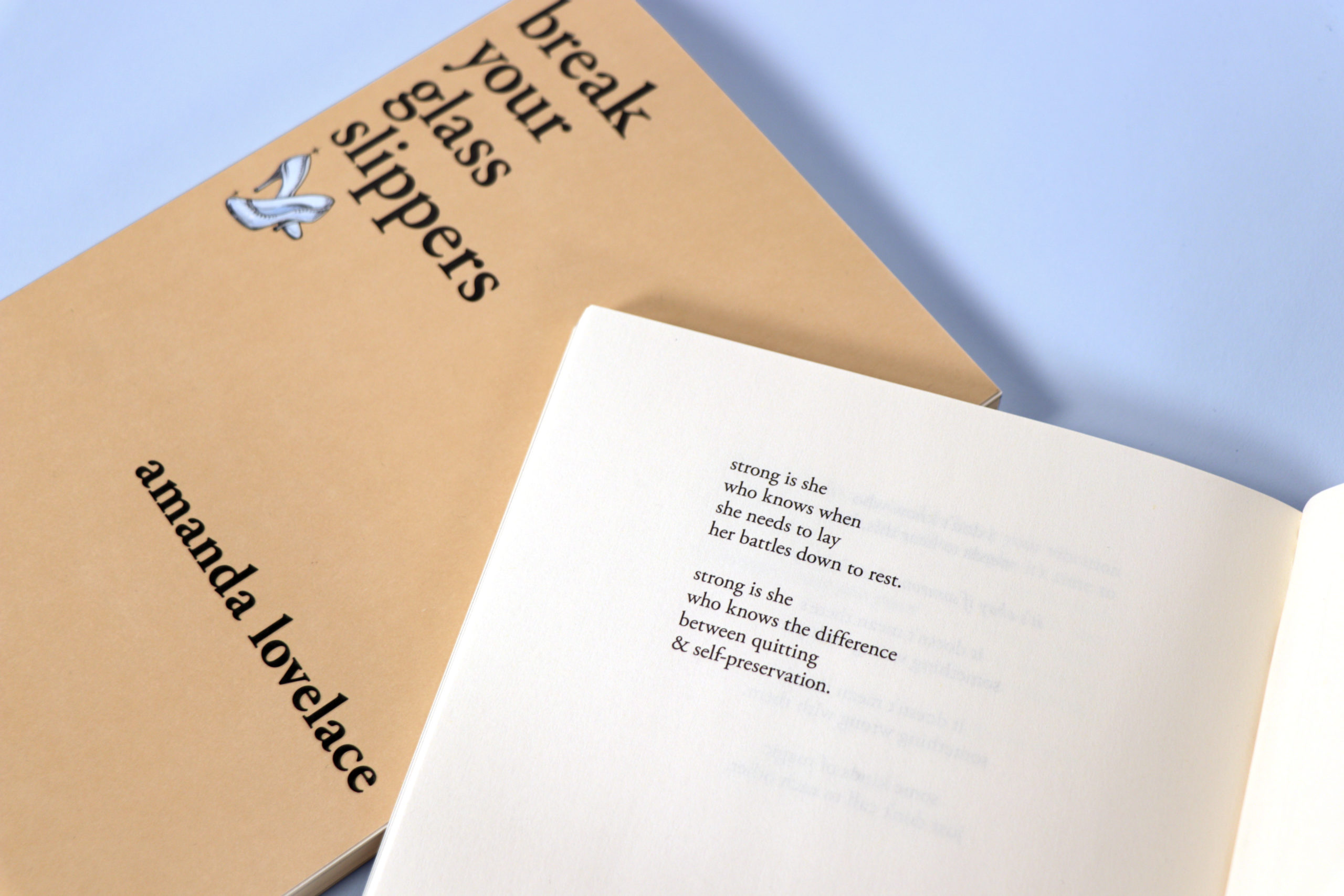
TV: “It is not your job to be beautiful,” is a strong sentiment throughout the collection. What literary tropes do you think have enforced this notion? In addition to your own work, what other books or authors would you say have worked against that?
AL: I think it’s less of a literary trope and more just what’s expected of women, real or fictionalized—the idea that we hold no real value if we aren’t performing society’s expectations of beauty.
We see something inspired by this even in Disney’s Cinderella. The evil stepmother is depicted as a serious and stuffy woman, and the evil stepsisters are depicted as less aesthetically pleasing than every other woman in the movie. Meanwhile, the innocent Cinderella is blatantly beautiful, even in dirty rags. All of this plays to the idea that pretty = morally good and valuable, and ugly = morally bad and worthless, which is not only untrue but dangerous.
Even Cinderella magically becomes more and more beautiful the more she comes into herself. This isn’t the transformation I wanted to show in break your glass slippers. I wanted to show acceptance of who you are right now, and at every stage of you.
From what I can recall, Marissa Meyer’s popular YA sci-fi series, The Lunar Chronicles, also pushes back against beauty standards. It also just so happens to be a series of fairytale retellings I highly recommend!
TV: Several poems also explore the value of being alone or self-sufficient, which is sort of the antithesis of the classic Cinderella story. What do you think it means to “be your own prince charming?”
AL: Being your own prince charming is, in my opinion, the notion that you don’t need to be in a relationship to be a complete person or your ultimate self. Even if you are in a relationship, it’s important that you have your own hopes, dreams, and interests. You are whole all on your own.
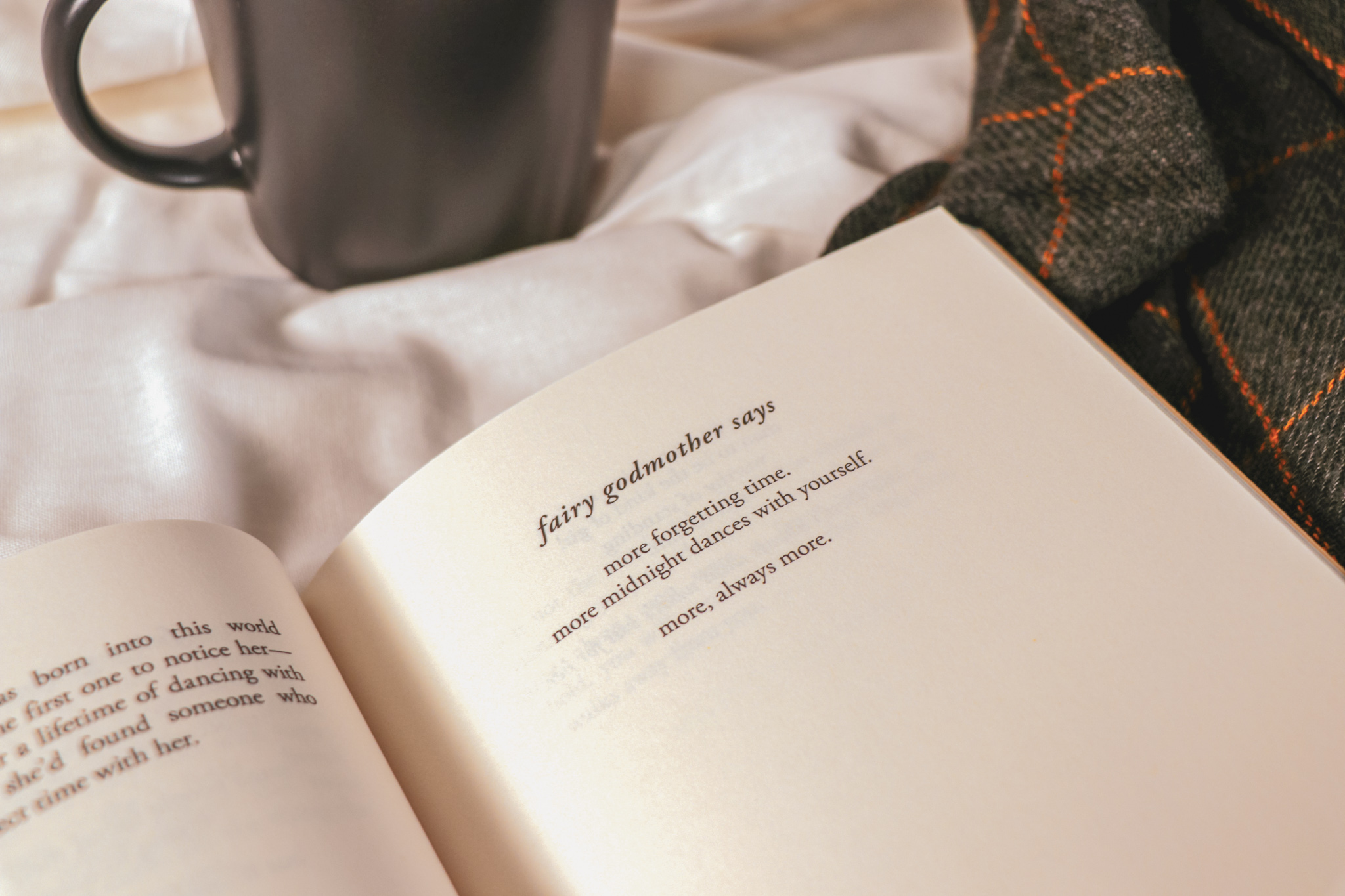
TV: In part i, you position certain poems next to responses from a fairy godmother. How would you describe what it means to “be your own fairy godmother?”
AL: In the classic Cinderella tale, the fairy godmother is there to grant wishes, to essentially transform Cinderella’s life for her. In real life, we, unfortunately, don’t get fairy godmothers or fantastical solutions to our everyday problems. When it comes down to it, we are the ones who need to take responsibility for our own healing and growth, and in this modern tale, I wanted the Cinderella character to realize that and have the epiphany that in the year 2020, she can be the princess who saves herself—and so can the rest of us!
TV: In the traditional Cinderella story, her stepsisters “compete” with her (and with each other) for the prince’s attention. However, in part ii, you make a point that greatness in others does not imply a lack of your own. How do you think certain stories have taught us to internalize competition among women, and what can we do to combat that?
AL: It happened in fairy tales—Cinderella versus her stepmother/stepsisters, Sleeping Beauty versus Maleficent, and Snow White versus The Evil Queen—and it’s still happening now, though not always so blatantly as that. I’ll be watching a TV show or reading a book and a female protagonist (usually with almost no other female friends) will say something like, “But I’m not like other girls!” Even when there are no other girls, we somehow turn them into the villains. We need to realize that other girls are not our enemies—we’re all fighting against the same things.
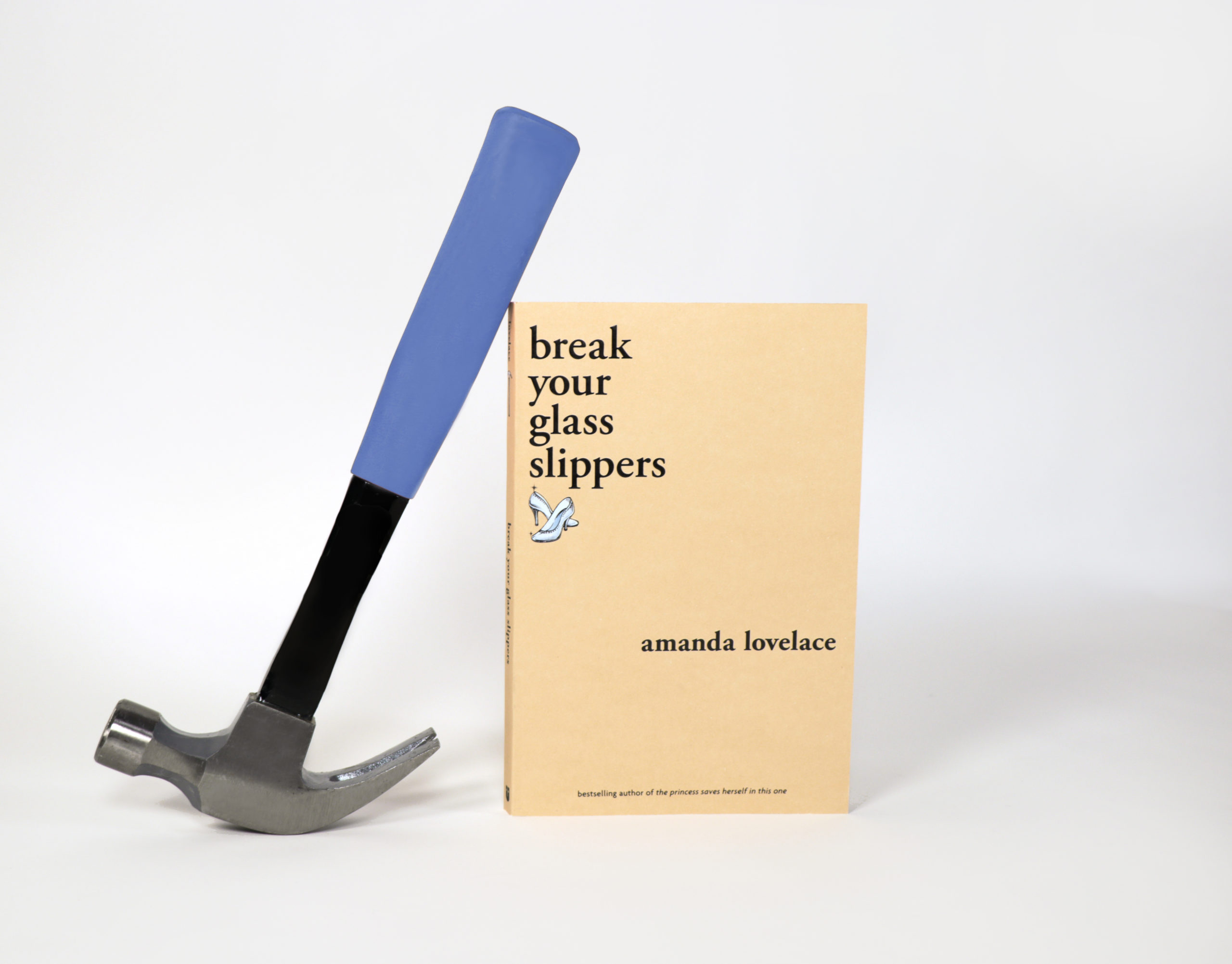
TV: What draws you to create a series of books? Do you know how many installments there will be before you start?
AL: Like a moth to a flame, I fly to what interests me the most, which just so happens to be fairytales. Luckily for me, there seems to be an endless supply of inspiration to be found in stories that already exist!
In terms of deciding how many installments will be in each series, it varies. With the “women are some kind of magic” series, I decided to play it by ear since it was my first rodeo. After the third book, the mermaid’s voice returns in this one, the series felt like it had reached a natural conclusion, and I didn’t want to write more sequels just for the sake of it. Instead, I’ve decided to release things based on the existing collections—calendars, a journal, and soon, an Oracle deck!
From the beginning, I knew that “things that h(a)unt” was going to be a duology about two separate but similarly abusive relationships—one that was romantic and one that was parental—that share a timeline. Easy.
“you are your own fairy tale” exists in an interesting space because each collection is a fictional fairy tale retelling, so I could probably write installment after installment. For now, though, I’m going to call it a trilogy, but I’m not sure exactly where the future will take it, which is both exciting and terrifying!
TV: After winning the Goodreads Choice Award for best poetry twice, and becoming a USA Today and Publisher’s Weekly bestseller, did you feel additional pressure when writing break your glass slippers? If so, how did you handle it?
AL: At first, there was pressure. A ton of it. I never want to disappoint my readers, and from my perspective, follow-ups rarely ever match the magic of the first book and/or series. The fear that nothing I ever wrote would measure up to the “women are some kind of magic” trilogy paralyzed me for a long time.
However, once I began writing break your glass slippers, those worries faded away on their own. I can only compare it to writing the princess saves herself in this one—my first and arguably my most well-received book—all over again, except this time . . . better. With more experience and a focused mind. It was as if everything I wrote from the princess saves herself in this one to to drink coffee with a ghost was preparing me for writing glass slippers. All of the experimentation, all of the missteps, all of the frustrations, helped me realize exactly what kind of writer I want to be.
What I want is to write short, accessible, magical, and empowering stories. I want to appeal to all kinds of readers—the casual reader, the reader who devours 100+ books a year, the reader who doesn’t know they’re a reader yet, and everyone in between. In addition to that, I want to genuinely enjoy whatever I write, and glass slippers was like coming home after traveling abroad for years.
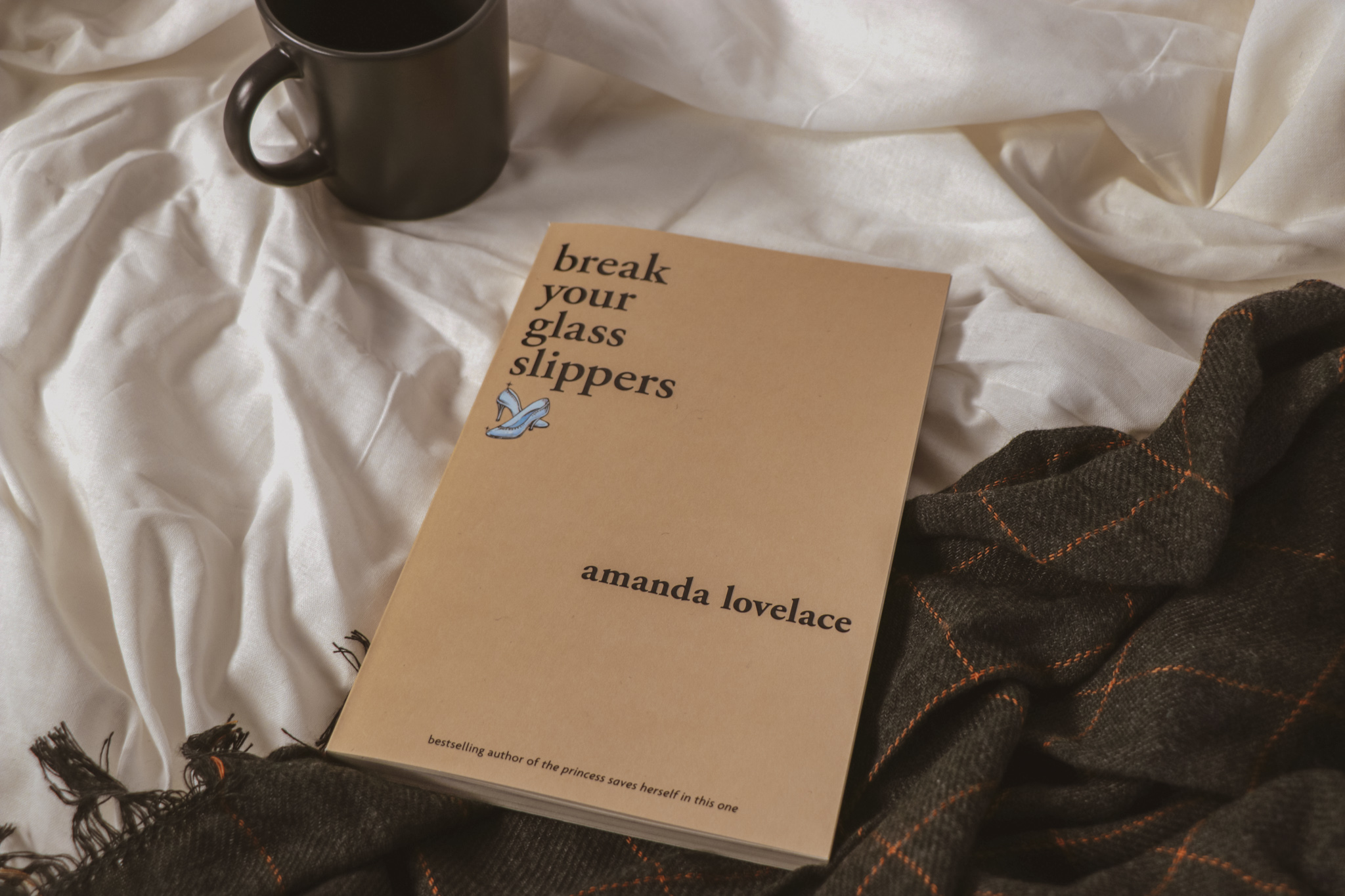
TV: With five collections under your belt between the women are some kind of magic series and things that h(a)unt, what transformations have you undergone as a writer?
AL: the princess saves herself in this one was the first book I ever wrote from start to finish. While I’ll never stop being proud of it, even I can admit it’s a little messy and inconsistent in some places, but self-expression so often is. That was the whole point of the book—writing my story the only way I knew how!
My second book, the witch doesn’t burn in this one, was extremely difficult for me to write. At that time, I was still grappling with the idea that I had a published book, and princess was also effectively my autobiography, so I had to ask myself, “What else is there?” The answer ended up being something a little more political—a feminist war cry about what it was like to be a woman in a misogynistic and patriarchal society. I hadn’t expected to go in that direction, and yet.
The conclusion to the “women are some kind of magic” trilogy, the mermaid’s voice returns in this one, had some challenges of its own. While I was starting to hit my stride in terms of writing style and content, I didn’t want to write the same book twice. Ultimately, I decided to tell my story again, this time exploring it through a relationship that shaped my outlook on life. That stole my voice, much like the way Ariel’s voice was stolen in The Little Mermaid. While it is an intensely personal tale, much like princess, one thing that defines this book is the last section, which incorporates pieces from other writers and survivors and is meant to be a callback to the solidarity found in witch.
Ultimately, when all was said and done, I felt like I wrote a series that made sense, that was tied together with a neat little bow, and it also shows my progression as a writer, which is to say that you have the fun of seeing me fumble like a newborn faun but also get it right sometimes!
With my lesser-known “things that h(a)unt series” duology, I attempted to take pieces of my life I had written about in princess and expand on them, this time through a paranormal lens instead of a fantasy/fairy tale one. to make monsters out of girls is about an abusive romantic relationship using vampire (yes, vampire) metaphors, whereas to drink coffee with a ghost is a story about the complicated relationship I had with my now-deceased mother, using ghost metaphors.
It’s a much darker and perhaps more “adult” series, so it can be a little polarizing. This is where I did most of my experimentation with style and the like. And boy, did I learn a lot from it!
TV: What is one thing you want readers to know about break your glass slippers that might not be so obvious?
AL: While the characters and situations found in glass slippers are fictionalized due to the nature of retellings, it’s not totally fiction—I like to call it “fiction, but not really.” Every poem is still based on my own lived experiences and feelings in some way or another.
For example, there’s a cruel stepmother character who body shames the Cinderella character in my modern rendition of the tale, but this character is not at all based on my own stepmother. But when you peel the layers of the poem back, the truth in it is that I have been body shamed in similar ways by different people in my journey.
The same goes for the jealous stepsisters—I don’t have this relationship with any of my own sisters, but I have had similarly competitive relationships with others!
And so on and so forth.

